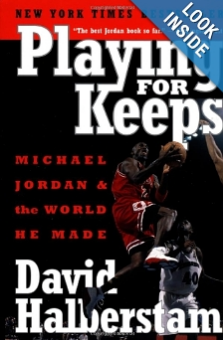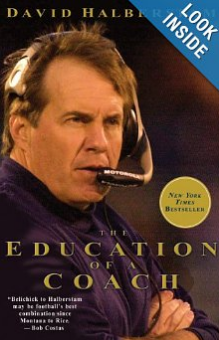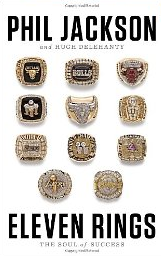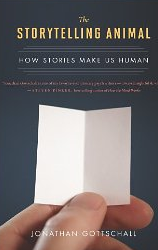I recently read “Playing For Keeps: Michael Jordan and the World He Made” by David Halberstam. Below are the quotes I found most interesting. As always, if you like the quotes, please buy the book here.
 “Jordan was the most gifted athlete in the league, but unlike most other supremly gifted players, he had an additional quality rare among superb artists whose chosen work comes so easily: He was an overachiever as well.” (14)
“Jordan was the most gifted athlete in the league, but unlike most other supremly gifted players, he had an additional quality rare among superb artists whose chosen work comes so easily: He was an overachiever as well.” (14)
“At Carolina, the ethic seemed to come from another time: The more you sacrificed for a goal – the higher the price you paid in personal terms – the more it would one day mean to you.” (80)
“What was interesting about the intensity of Jordan’s practice habits, thought Steve Hale, was that they were rare for a player so naturally gifted.” (99)
“It was part of David Stern’s innate wisdom that in the long run if you did the right thing and did not try to take credit for too much of what you did, then people would give you not only the right amount of credit, but perhaps even more.” (121)
“Rob Strasser was a man driven by impulse and faith in his own instincts, and his instinct when he had an idea was to go for it.” (143)
“Jordan turned to Falk and said, “Let’s make the deal.”
“But you never cracked a smile, or showed any enthusiasm,” Falk said to him.
“I had my business face on,” Jordan answered, and with that Falk had a quick sense that he was dealing with more than just another bright, talented athlete, that there were dimensions to this young man that he was still to learn.” (145)
“As Jordan smiled, race simply fell away. Michael was no longer a black man, he was just someone you wanted to be with, someone you wanted as your friend. The smile was truly charismatic, Moore reflected in later years. It belonged to a man completely comfortable with himself and therefore comfortable with others.” (146)
“Jordan was the first player at every practice and the last to leave, the hardest-working NBa practice player any of them had ever seen.” (152)
“The love could not be coached or faked, and it was something he always had. He was joyous about practices, joyous about games, as if he could not wait for either.” (153)
“Opposing teams got the killer, and the fans watching the Nike commercials got the charmer, a man of humor and intelligence, someone everyone seemed to like. “We broke i open, and we did it not by brilliance, but by sensing what felt right, and showing him as a human being,” Riswold said years later.” (182)
“Phil Jackson was also very smart, one step ahead of them at almost all times, and they knew they could not con him. The fact that he was not easily predictable was an asset, Rosen thought. It kept the players interested.” (194)
“Winning teams, Isiah Thomas decided, always saw themselves as being apart, taking on the rest of the world. If they did not have enemies who were trying to take away what was rightfully theirs, then they invented enemies in order to help push themselves toward their goals.” (237)
“Daly did not push it that evening, he simply told Isiah to think about it, and take a couple of days before he made up his mind, knowing that the very force that drove Thomas to this point of desperation, the passion to compete and win, would keep him in the game, that his disappointment and depression were the other side of the coin of love of the game and the need to excel.” (240)
“If there was one critical quality to coaching in the NBA, it was the ability to let go, to accept the occasional defeat on nights when you knew your team should have won.” (247)
“Whom the tabloids first inflate, they eventually attempt to destroy, or at least try to diminish.” (322)
“But when his pessimism was at its greatest, he would drive past a playground and watch a bunch of kids playing even as darkness fell, and he could envision the young B.J. Armstrong playing into the night and dreaming of playing in the NBA. Then he would remember tha the had been lucky enough to live out his dream.” (330)
Liked the quotes? Buy the book.





